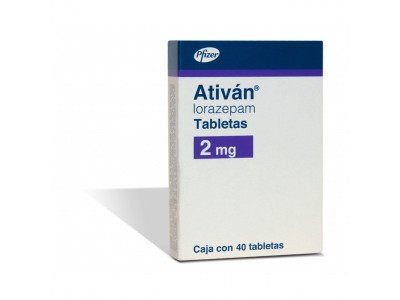Is Benadryl Effective in Calming Nerves Before Flying?
For many individuals, the thought of flying can trigger significant anxiety, leading them to seek out remedies to calm their nerves before boarding a plane. One commonly discussed option is Benadryl, an over-the-counter antihistamine typically used for allergy relief. But is it effective for anxiety, especially in comparison to prescription medications like Ativan or Valium? This article delves into how Benadryl works, its effectiveness for anxiety, and how it compares to other medications that are specifically designed to alleviate anxiety before flying.
How Does Benadryl Work?
Benadryl, known generically as diphenhydramine, is primarily an antihistamine that combats allergy symptoms by blocking histamine receptors in the body. While not intended as an anxiety medication, it has sedative properties that can make users feel drowsy. This sedative effect is why some people consider using it to calm their nerves before flying. However, it's essential to understand that the calming effect of Benadryl is a side effect rather than a targeted treatment for anxiety. Its primary role is to address allergic reactions, not to act as a central nervous system depressant. The sedative effects may help some individuals relax, but for others, it might not provide sufficient relief from the anxiety experienced before a flight.
Comparing Benadryl to Ativan and Valium
When evaluating Benadryl against prescription medications like Ativan (lorazepam) and Valium (diazepam), it's crucial to note the differences in how these drugs work. Both Ativan and Valium belong to a class of medications known as benzodiazepines, which are specifically designed to reduce anxiety by enhancing the effects of a neurotransmitter called gamma-aminobutyric acid (GABA). GABA works by inhibiting brain activity, leading to a calming effect on the central nervous system. This targeted approach makes benzodiazepines much more effective for treating anxiety than an antihistamine like Benadryl.
Moreover, the onset of action is another factor to consider. Ativan and Valium typically begin working within 30 minutes to an hour, providing quick relief from acute anxiety. Their effects last longer, making them ideal for managing anxiety throughout the duration of a flight. In contrast, the sedative effects of Benadryl might wear off sooner, potentially leading to a recurrence of anxiety symptoms mid-flight. Additionally, benzodiazepines offer more consistent results, while Benadryl’s effectiveness can vary widely among users.
Potential Side Effects and Risks
When considering Benadryl for anxiety relief before flying, it’s important to be aware of the potential side effects. Common side effects include drowsiness, dry mouth, dizziness, and in some cases, a paradoxical reaction where the individual becomes more agitated instead of calm. On the other hand, Ativan and Valium also come with their own risks, including dependency and withdrawal symptoms if used frequently. However, when used as prescribed and on an as-needed basis for flying, these risks are generally low.
Another concern with Benadryl is its potential to cause significant drowsiness, which could impair cognitive function and coordination. While this might seem beneficial for those wanting to sleep through a flight, it could be problematic if the drowsiness lingers after the flight or interferes with activities requiring alertness once the plane lands. In contrast, while Ativan and Valium also cause drowsiness, the effect is more predictable and tailored to the needs of those with anxiety, rather than as an unintended side effect.
Alternatives to Benadryl, Ativan, and Valium
For those who prefer to avoid medications like Benadryl, Ativan, or Valium, there are alternative strategies for managing pre-flight anxiety. Cognitive-behavioral therapy (CBT) is one such method, offering tools and techniques to manage anxiety through thought restructuring and exposure techniques. CBT can be highly effective but requires time and effort to see results. For individuals looking for non-pharmaceutical solutions, herbal supplements such as valerian root or chamomile may provide mild calming effects, though their efficacy is not as well-documented as prescription medications.
Another alternative is mindfulness meditation, which helps individuals stay present and reduces anxiety by focusing on breathing and body awareness. This technique can be practiced anywhere, including on a plane, making it a convenient option for travelers. Additionally, practicing relaxation techniques such as deep breathing exercises can help mitigate anxiety symptoms without the need for medication. These methods are particularly beneficial for those who experience mild to moderate anxiety and prefer a drug-free approach.
Conclusion
While Benadryl may offer some relief for anxiety due to its sedative effects, it is not as effective as prescription medications like Ativan or Valium for managing pre-flight nerves. Benzodiazepines are specifically designed to address anxiety and provide a more targeted and reliable approach. However, they come with their own set of risks, and not everyone may find them suitable. For those seeking alternatives, non-pharmaceutical options like CBT, mindfulness meditation, and herbal supplements may provide a viable solution. Ultimately, the choice of treatment should be based on individual needs, the severity of anxiety, and in consultation with a healthcare provider.
